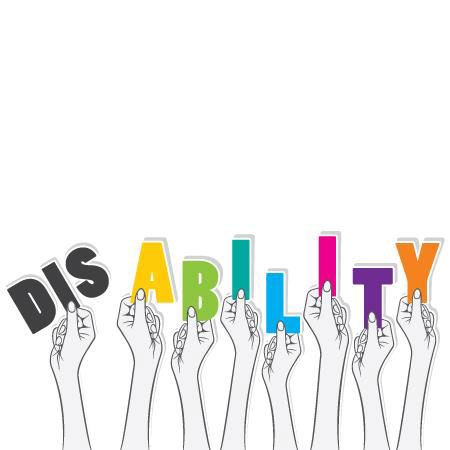Looking Beyond Disability

MANAGEMENT
When employers accommodate the disability, they benefit from the ability.
Disability is a loaded word. Is a disability a real mental or physical impairment, or is the “disability” a blockage to useful employment created by the failure of society to accommodate? For example, is a person in a wheelchair disabled, or has society failed to enable them by building ramps and wider interior doorways that allow persons with disabilities to be usefully employed in the first place?
Seeing failure to accommodate disability as a social problem recognizes that society loses the value of the other abilities possessed by persons with impairments.
Statistics Canada reports that in 2012, about 10.1% of the 2.3 million working-age (15-64) Canadians reported some form of disability. This figure jumps to 33.2% for those over 65. A report by the Royal Bank of Canada completed in 2000 estimated that (at that time) persons with disabilities possessed about $25 billion in annual spending power.
Impairment Is Not Always Obvious
Perhaps statistics gathered by the Vision Council of America can bring the role of accommodation closer to home. The Council estimates that 75% of the adult population use some sort of vision corrective such as glasses (64%) or contact lenses (11%). But how many of us think of ourselves as visually impaired? Without such lenses to accommodate the visual impairments of three quarters of the adult population, many of us would not be employed in our current positions, and society would not function as it does today.
One has only to look at the Paralympic Games and the recent Invictus (i.e., Latin for “unconquered”) Games to see what persons with impairments can do when they are recognized for their abilities. The kind of determination shown by these star performers should make clear to any employer that persons with
impairments have what it takes to be of value in the workplace.
Nevertheless, there are still preconceived biases to be overcome to achieve inclusiveness for all.
Inclusion and Equality for Everyone
In fact, the Charter of Rights and Freedoms, the Canadian Human Rights Act (CHRA) (for federally
regulated institutions) and the various provincial Acts that supplement the CHRA all support what is now
recognized as the human rights of persons with impairments to be accommodated so they can live their lives as they see fit. Ontario now has the Accessibility for Ontarians with Disabilities Act , 2005, which requires all Ontario businesses to be able to accommodate persons with impairments by 2025.
Employing Disabled Persons
Employers should look past the impairment to consider the following:
- Impaired persons may have the skills necessary to perform the task.
- Building an inclusive environment starts at the top. Management must support hiring practices that evaluate individuals for what they can contribute, regardless of their impairment.
- Integrating persons with impairments into the workplace may require educating current employees to set aside all preconceived ideas about disabled persons.
- Management may need to address initial concerns about safety, perceived special treatment or productivity, to maintain a positive work environment.
Accommodation may require physical changes to the workplace.
The Employers’ Duty to Accommodate
Accommodating those with disabilities may require changes in office layout or certain work areas,
modifications of access points, washroom areas and equipment. In that this will be a learning curve for both employer and employees, management must ensure the concerns of all employees are addressed to maintain a positive work environment.
Organizational Help
Many organizations provide help, for example, Ready, Willing & Able (RWA), the national partnership of
the Canadian Association for Community Living (CACL), the Canadian Autism Spectrum Disorders Alliance
(CASDA) and their member organizations. Funded by the Government of Canada and active in 20
communities across the country, RWA is designed to increase the labour force participation of people with
an intellectual disability or Autism Spectrum Disorder (ASD) (readywillingable.ca). The Canadian
Association for Supported Employment (CASE) is a national association of community-based service
providers and stakeholders working to ensure the workplace includes people with disabilities. The
organization provides online information to assist employers in finding not only the necessary tools to hire employees with disabilities, but also to provide guidelines for management and all employees (supportedemployment.ca).
Potential Problems
Employers must ensure the lines of propriety are not unintentionally crossed when hiring those with
disabilities.
- Do the job analysis and determine what, if any, accommodation may be required for someone with a
disability to perform effectively. Regardless of the degree of disability, it is essential to determine what accommodations must be made to support the employee in all aspects of the job. - It may be advisable to consult an HR expert to review procedures and protocols to ensure bias -free
recruitment and selection procedures. - When scheduling an interview, ask the applicant whether there will be any special accommodation
during the interview. - Ensure access for the interview. Many older buildings have not yet been retrofitted to accommodate
wheelchairs. - Understand which questions you can and cannot ask. As with any applicant, focus on the applicant’s job skills, experience, and how they would accomplish the tasks outlined in the job description.
Engage with Life
Canadian businesses need to address the capabilities of persons with disabilities and the benefits these
individuals offer not only to business but also to society. Corporal (Retired) Jackie Buttnor, a participant in the Invictus games, best described the human need for a satisfying engagement with life: “I am just going for it with the Invictus Games. It’s much more rewarding than sitting life out.”
Disclaimer
The information provided on this page is intended to provide general information. The information does not take into account your personal situation and is not intended to be used without consultation from accounting and financial professionals. Allan Madan and Madan Chartered Accountant will not be held liable for any problems that arise from the usage of the information provided on this page.


SOCIAL CONNECT